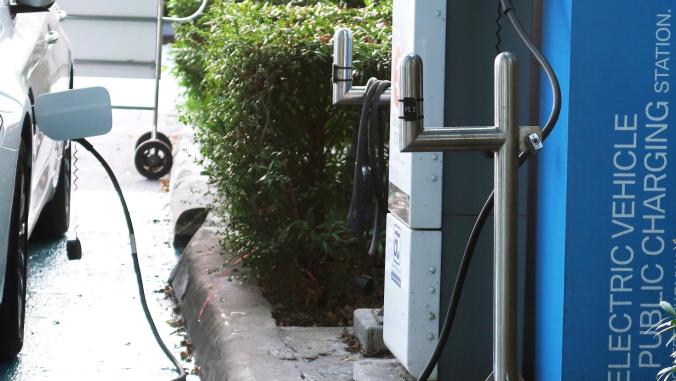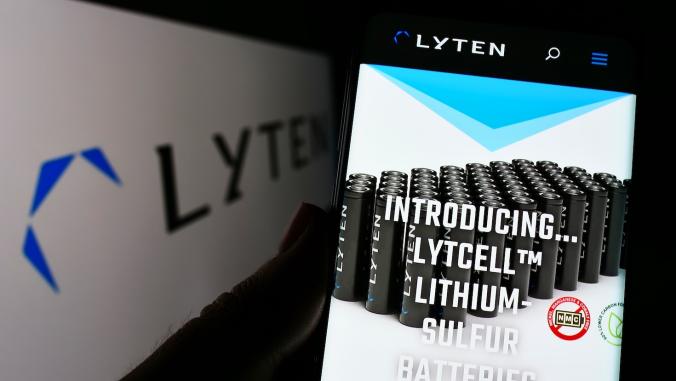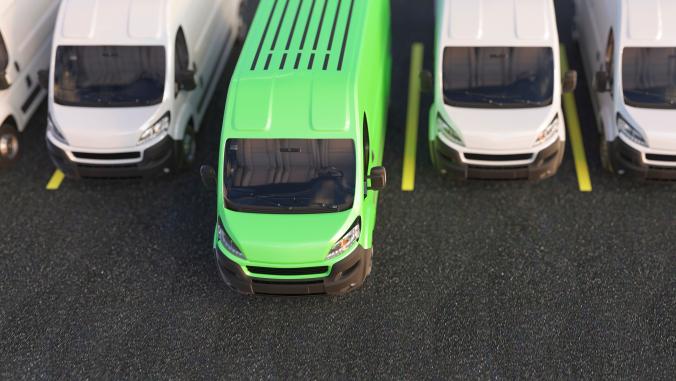A bumpy ride for American automakers
Electric plans and sustainability will pave the road to the future for General Motors, Ford and Fiat-Chrysler.

The Ford Mach E, an all-electric SUV.
As if "the Big Three" — the three largest U.S. automakers, General Motors, Ford and Fiat-Chrysler — needed any more uncertainty in their dramatically transforming industry.
Fears of coronavirus have left global automakers scrambling to prevent part shortages of supply chains that weave across virus hotspots such as China and Italy. Big Three auto stocks already were falling since the beginning of the year. Like the rest of the market, they have continued to drop on coronavirus news.
But despite major headwinds, don't count the Big Three out just yet. Tesla might get all of the electric car headlines, but both Ford and GM have unveiled substantial plans to roll out electric vehicles in key market segments, such as Ford's all-electric SUV, the Mustang Mach-E. This week, GM plans to unveil more about its sweeping electric vehicle plans at an event dubbed EV Day on Wednesday at its Design Dome in Warren, Michigan.
Fiat-Chrysler (co-owned by Milan-based Fiat) likewise has plans to electrify Jeeps and Ram pickup trucks but has been far less aggressive than its American peers. Electrification plans will remain key to just how well the Big Three will weather the storm.
So will other key programs, such as the latest in-vehicle connectivity, authentic brand-enhancing sustainability plans, viable autonomous vehicle projects and new mobility services that sell access over ownership.
But sustainability also will have a unique role in these trying times. A few weeks ago, I chatted with Ford's new sustainability lead Bob Holycross, promoted to the top environmental spot three months ago (he's also tasked with safety). I was wondering in such a chaotic and uncertain market, do sustainability plans suffer or can they help a company more cohesively navigate a disrupting landscape?
Here's what Holycross had to say about sustainability and restructuring:
"One of the things we’ve done in terms of our operating model internally is really embedding sustainability in every aspect of our business. The way I try to give the analogy for a basis of comparison is how companies manage quality. Quality is not a part you add on to a particular product at the end that somehow makes it defect-free; it’s inherent in every part of the business from the initial design and development all the way up to the production cycle and manufacturing process...Quality is not a part you add on to a particular product at the end that somehow makes it defect-free.
"As we have different changes in our organization, one of the things that stays constant is the integration of sustainability across it. In terms of my job and my interface with my peers within the company regardless of how we’re structured on an org chart, sustainability is at the heart of everything we do."
I thought it was an interesting lens: Sustainability can be sort of the glue that stays constant in a changing world. And, of course, leadership around sustainability is even more important these days in a disrupting landscape.
This article is adapted from GreenBiz's weekly newsletter, Transport Weekly, running Tuesdays. Subscribe here.




